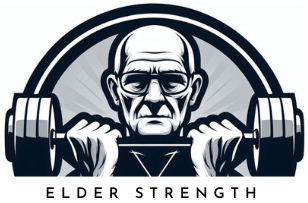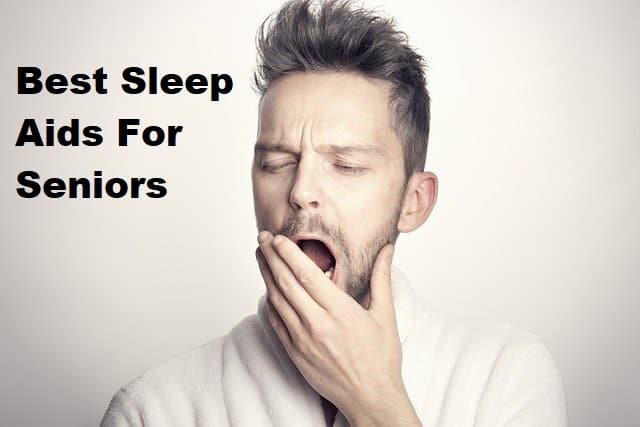Welcome friend! In this post, you will learn about the best sleep aids for seniors and how they can help you get a good night of sleep.
Tossing and turning in the bed past midnight. Or maybe falling to sleep straight away but waking up in a couple of hours and not being able to get back to sleep.
No matter what type your sleeping problems are, insomnia can be a real pain that affects your quality of life and health negatively.
Unfortunately, aging is associated with increased insomnia for many. Medications, medical conditions, and cognitive changes can wreak havoc on your sleep.
Insomnia is especially common with people who tend to be anxious and it’s a common symptom of many mental health conditions. Unfortunately, many seniors suffer from these as well.
But here’s the good news. Insomnia can often be treated with sleep aids like natural herbs as well as some lifestyle choices and technical solutions to your bedroom.
Of course, it’s always important to rule out medical causes for insomnia. In severe cases different kinds of medications, aka. sleeping pills might be necessary but that is for your doctor to decide.
But let’s look at what can you try before resorting to medications.
What Are Sleep Aids
When most people talk about sleep aids they are usually referring to natural herbs and otc medicine that are known to help with insomnia. Melatonin for example.
But when you think about sleep aid is anything that helps you get a restful and full night of sleep.
That’s why I also include your sleeping conditions in the sleep aids. Having a comfortable bed and pillow, a dark and well-ventilated bedroom, and good sleeping habits is much more important than herbal supplements when it comes to good sleep.
That said, there are supplements that are surprisingly effective in treating insomnia. But there are some important safety precautions involved.
It’s important to realize that supplements, unlike medications, are not that well-controlled in most countries.
This means that the quality can be fickle and there can be all kinds of additives and even hazardous compounds like heavy metals. You basically are on the hands of the manufacturer to trust their quality control is up to par and they are honest.
Even more importantly natural doesn’t mean safe or healthy. The truth is that any herb or supplement that is actually effective has some mechanism of action on your body.
This mechanism of action can affect several bodily functions in unpredictable ways, especially when combined with other herbs or medications. The greatest risk is typically for your liver and kidneys that are responsible for metabolizing the supplements.
So a sleep medication that’s prescribed by a doctor might be a safer bet. Unfortunately, there is plenty of evidence that chronic use of sleep medication is associated with all kinds of negative health effects for seniors.
That’s why it’s important to focus on improving your sleep without supplements and medication first and only use them when absolutely needed to avoid dependence.
Technical Sleep Aids
Let’s start by looking at technical sleep aids that will make your bedroom more supportive for your sleep.
The first thing is of course your bed. The mattress and pillow are very important for restful sleep. It’s impossible to tell you what kinds you need because the individual preference is huge. You can get some ideas from the article Top Adjustable Bed For Seniors.
The important thing is that your mattress is supportive and comfortable for your body, the pillow is the correct size and hardness to support your head and neck and the sheets are clean and comfortable. The basics that you surely know.
The next technical sleep aid I’m going to recommend is blinding curtains and removing any sources of artificial lights from your bedroom like I talked about in the article How To Improve Sleep In The Elderly
Light exposure is one of the most important factors for high-quality sleep. We sleep best in complete darkness which in most places requires you to have blinding curtains due to artificial lights outside.
If you have electronic devices with indication lights in your bedroom, I recommend you remove them as the small LEDs can actually light up the whole room when it’s completely dark.
Finally, it’s important to make sure your bedroom has good ventilation and temperature. Most people sleep better in colder temperatures but it’s important to still feel comfortably warm. Shivering isn’t going to help you sleep after all.
What the perfect temperature is for you is of course highly dependent on preference. But trying to lower the temperature in your bedroom might be worth a shot.
For ventilation, it’s important to make sure that there is a source of fresh air in your bedroom, preferably through a filtered vent.
Without sufficient ventilation carbon dioxide from your breathing can increase during the night otherwise. This can affect your sleep negatively, leaving you feeling groggy in the morning or waking you up anxious during the night.
Lifestyle Changes
It’s also important to talk a little bit about lifestyle and sleep hygiene when it comes to difficulty sleeping.
A healthy diet that provides all the nutrients your body needs is important for sound sleep. Eating too much or being hungry are both generally bad for your sleep. You can get some ideas for a good diet in the article Paleo Diet For Seniors.
So it’s important to eat healthily and avoid foods that can crash your blood sugar during the night. So avoid sugar and processed carbs at night.
A healthy dinner and small snack that consists of protein, some fat, and complex carbs are usually a good place to start. For example, a small bowl of yogurt with sugar-free cereals and nuts should be good to keep your blood sugar stable during the night.
Exercise during the day is important to reduce anxiety and feeling wired in the bed. However, exercising too much too close to bedtime can have the opposite effect. A good long walk during the day is a good place to start.
If you are suffering from severe sleep deprivation, strenuous exercise like jogging, powerlifting or CrossFit is not probably a good idea until you have your sleep in check.
Finally, it’s important to wind down for bed. Stop watching TV, computer, or smartphone at least an hour before bed, preferably two. This will give your mind time to wind down and get ready for sleep.
Best Sleep Aids For Seniors
So now that we have the basics covered it’s time to talk about actual supplemental sleep aids that can help with insomnia.
Like I said before, it’s important you realize that supplements or natural don’t mean safe.
I recommend you buy supplements from reputable brands and it’s probably a good idea to discuss them with your doctor to make sure there are no contraindications due to medical conditions or medication.
Melatonin
You’ve probably heard of melatonin before and might have even tried it. The reason why melatonin is so popular for insomnia is that it’s well researched and shown to be effective.
Melatonin is also considered a safe supplement and if you buy it from a reputable brand it should be fairly safe to use. It’s important to realize that the long-term use of melatonin is still not researched enough to tell if there might be risks for long-term use.
Melatonin can make you feel a bit groggy in the morning if you take too much. I personally find that a small dose is more effective than a high dose. Around 1 mg is enough to cause the sleep-inducing effect.
All that said, melatonin is not that effective for severe insomnia. But it’s a relatively safe supplement to try in conjunction with the lifestyle changes that should help you sleep.
Natural Sleep Aids For Seniors
Hops
Hops are one of the best herbal sleep supplements that most people don’t know about. It has actual scientific proof for its effectiveness and because it’s so widely used in beers, it’s known to be relatively safe.
Hops are best taken as a tea but another great option is alcohol-free beers if you enjoy the taste of beer. Hops are actually the compound that gives beer its bitter taste.
However, alcohol-containing beer is not recommended for sleeping problems. It might help you fall asleep but alcohol has a detrimental effect on sleep quality and often causes you to wake up after a couple of hours.
The effect of hops is very subtle. It makes you a bit tired, reduces anxiety and it’s also said to reduce your body temperature a bit, making your body prepare for sleep.
Valerian
Valerian is another well-known herb for sleeping problems and anxiety. Even though it has been traditionally used for insomnia, the evidence for its effectiveness for insomnia is lacking.
The reason I include it in this post is that I have personally found it to be beneficial if I’m having trouble sleeping due to stress or feeling anxious.
The effect is very similar to hops in my opinion but perhaps a bit more calming instead of tiring. So I personally prefer hops over valerian.
Chamomile
Finally, the third natural sleep aid is Chamomille. Once again very similar to hops and valerian in its effect. Just like valerian, there is no high-quality clinical evidence for its effectiveness.
However, there is plenty of anecdotal evidence and people have been using chamomile for insomnia for centuries. I personally definitely notice a relaxing and sleep-inducing effect from a strong chamomile tea.
The common thing with all of these herbs is that they contain bitter compounds like polyphenols and terpenes, that can affect the central nervous system.
It’s likely they all function through similar mechanisms, one theory is that they affect the GABA receptors.
In my experience they are effective but it’s important to realize they are probably not safe or effective for long-term use and that they can have known and unknown drug interactions and health effects.
Chamomille is actually known to interact with NSAID painkillers and you shouldn’t combine them.
Conclusion
I hope you found this post about the best sleep aids for seniors useful. Feel free to leave any questions in the comments section below and I will get back to you.
Insomnia and sleeping trouble can definitely reduce your life quality and affect your health, so I recommend you talk to your doctor and try the lifestyle changes I recommended and make sure your bedroom is good for sleep.
Supplements can help intermittently, but just like medication, you shouldn’t use them constantly. It’s also important to realize that supplements and herbs are not necessarily safer than medications.
Thanks for reading and see you next time!

